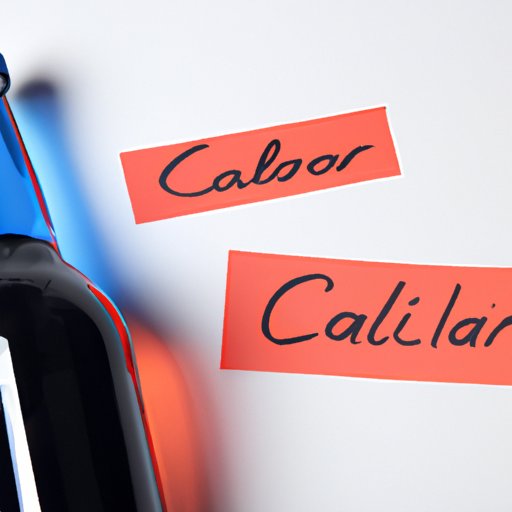
I. Introduction
Alcohol consumption is a social norm in many societies, and its impact on weight gain is a widely debated topic. This article aims to shed light on whether drinking alcohol can lead to weight gain, and if so, how significant the impact is. By understanding the link between alcohol and weight gain, individuals can make informed decisions about their drinking habits and weight management goals.
II. Debunking the Myths: Does Drinking Alcohol Really Make You Gain Weight?
There are many myths surrounding alcohol and weight gain, including that beer is the only alcoholic drink that leads to weight gain, or that certain types of alcohol are less likely to cause weight gain. However, the reality is that all types of alcohol have calories and can contribute to weight gain. Moreover, scientific evidence has shown a strong link between alcohol consumption and weight gain, especially abdominal fat gain.
III. The Hidden Calories in Your Glass: Understanding the Impact of Alcohol on Your Weight
Alcoholic drinks contain empty calories, meaning they do not provide any nutritional value but still contribute to daily calorie intake. The calorie content of alcoholic drinks varies widely, with some drinks containing as little as 65 calories per serving, while others can exceed 500 calories per serving. Additionally, alcohol slows down metabolism and can increase appetite, making it easier to overconsume and consume additional calories.
IV. Alcohol Consumption and Weight Gain: Exploring the Link and Finding a Balance
Factors that contribute to weight gain from alcohol include the type of alcohol, the frequency and quantity of consumption, age, genetics, and lifestyle behaviors. While there is no specific threshold that determines whether or not alcohol consumption causes weight gain, moderation is key. Tips for moderating alcohol consumption while still enjoying social occasions include alternating alcoholic drinks with water or non-alcoholic beverages, choosing low-calorie drinks, and setting limits on the number of drinks consumed per occasion.
V. The Science Behind Alcohol and Weight Gain: Understanding the Metabolism Process
When alcohol is consumed, the body processes it as a toxin and metabolizes it in the liver. The liver converts alcohol into energy, which is burned off before the body burns off other calories. This means that any calories from food consumed during or after alcohol consumption are likely to be stored as fat. Moreover, alcohol can disrupt hormones that regulate metabolism and fat storage, which can also contribute to weight gain.
VI. Healthy Alternatives to Alcohol: How to Enjoy a Night Out Without Compromising Your Weight Loss Goals
For those who want to enjoy a night out without consuming alcohol or excess calories, there are plenty of healthy alternatives. Low-calorie drinks include sparkling water with a splash of fruit juice, diet soda mixed with a splash of fruit juice, or herbal tea. For those who still want to enjoy a cocktail, there are many healthy drink recipes that use low-calorie mixers, such as fresh fruit, herbs, and spices.
VII. Conclusion
Drinking alcohol can contribute to weight gain, but moderation and awareness of the calorie content of drinks can help individuals make informed decisions about their drinking habits and weight management goals. By understanding the link between alcohol and weight gain, individuals can take control of their health and enjoy a balanced lifestyle.




